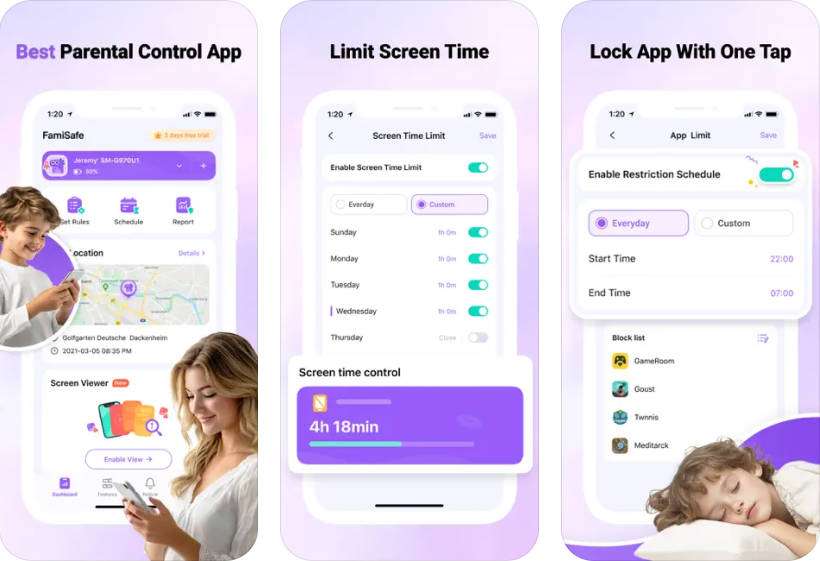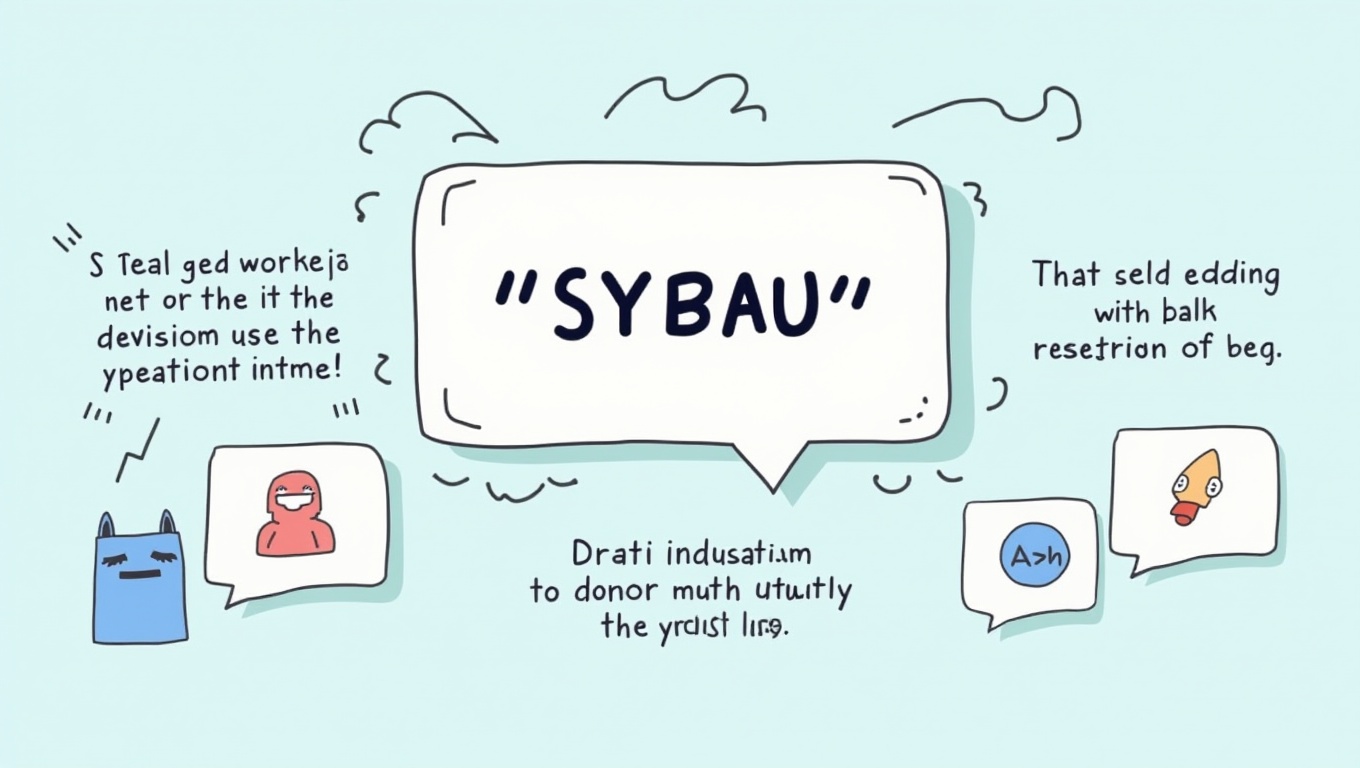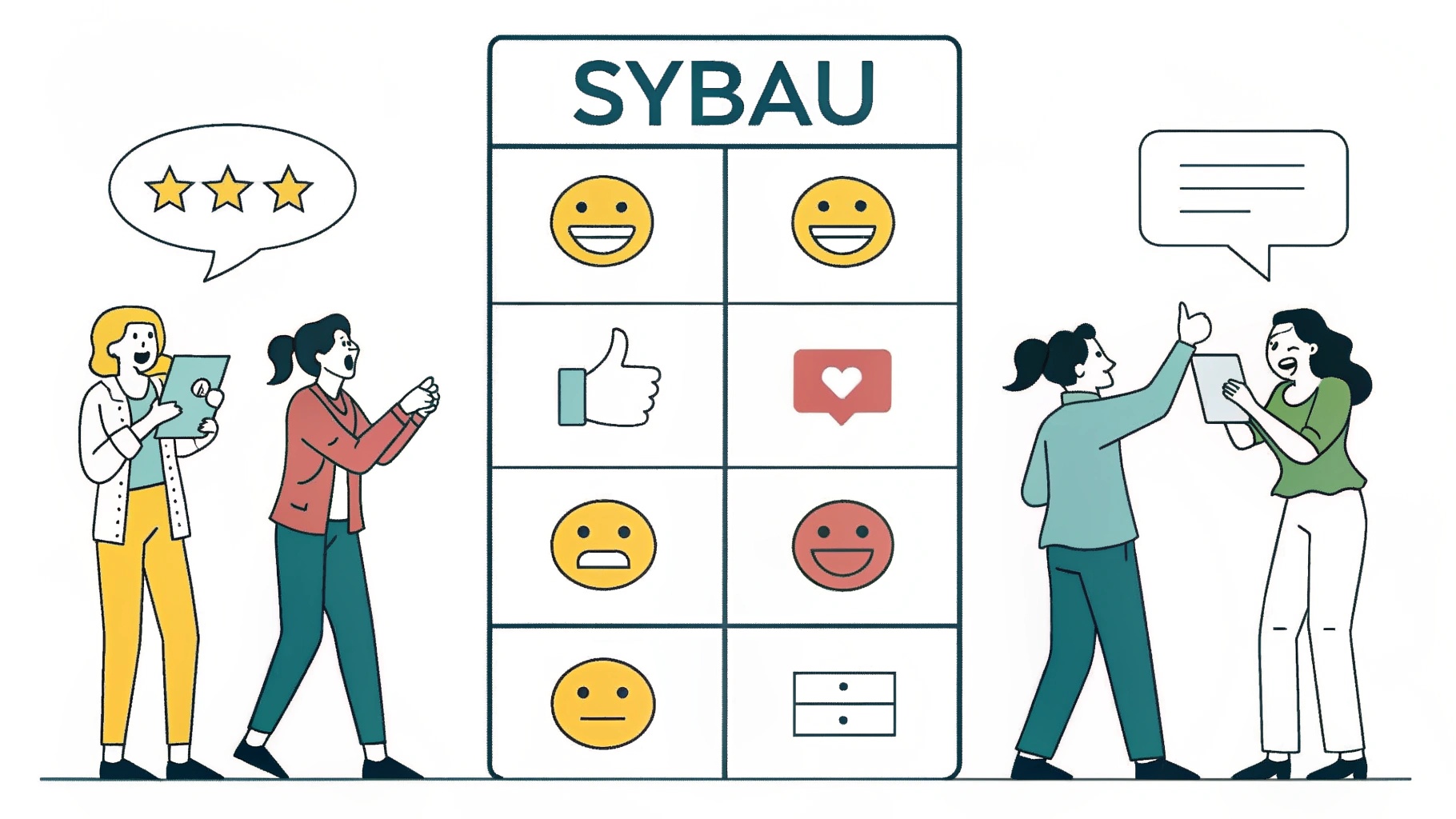New internet slang pops up every week, and it can be hard for parents to keep up. If you’ve recently seen the term SYBAU on Snapchat, TikTok, Discord, or in a text thread and wondered “what does SYBAU mean?”, you’re not alone. This guide explains the SYBAU meaning in plain English, shows where teens use it, and offers practical steps to keep online conversations safer—without killing your child’s trust or independence.

In This Article
Part 1. What Does SYBAU Mean?
SYBAU is an acronym that is typically used as a blunt, dismissive comeback in online chats. In many conversations, it carries a harsh or confrontational tone, similar to telling someone to stop talking in a rude way. Because it’s an initialism, it often slips past casual content filters and appears in comments or replies when emotions run high.
Two things are important for parents and general readers to know about the SYBAU meaning in text:
- Intent varies by relationship and setting. Friends might toss it around jokingly (similar to roasting), while strangers can use it to shut someone down.
- It is usually not polite. Even when joking, the phrase can sound aggressive—especially in public threads where tone is hard to read.
In other words, when you ask, “what does SYBAU mean in text?”—the short answer is: it’s a rude, dismissive reply that can be playful among close friends but easily crosses into hostility.
What Does 'SYBAU' Mean? 🔍
Teens use slang like 'SYBAU' to hide risky conversations. FamiSafe’s slang detection helps you understand their words and spot potential dangers before it’s too late.
Try FamiSafe FreeExplore Related Articles:
Part 2. How Teens Use SYBAU Online
To understand the SYBAU meaning in the real world, it helps to look at where teens encounter it. Here are the most common places:
- Snapchat — Quick replies to private Snaps or group chats, especially when a joke goes too far or someone spams the chat.
- TikTok — Comment sections under trending videos; the acronym may show up during heated debates or when creators post “hot takes.”
- Discord & gaming chats — Fast-paced conversations in servers or lobbies; SYBAU can appear after a loss, trash talk, or rule disputes.
- Instagram DMs & comments — Used in friend groups or under reels when people disagree or tease each other.
Typical scenarios include:
- Teasing among friends — A teen might say “SYBAU 😜” in a friendly roast. The emoji can soften the tone—but not always.
- Shutting down strangers — In public comment threads, it’s often meant to silence someone and can escalate conflict.
- Filter workarounds — Acronyms sometimes bypass keyword filters, so slang like SYBAU can spread quickly.
Key takeaway: Teens use SYBAU in fast, emotional exchanges. Without context—who said it, to whom, and why—its tone is easy to misread.
Tip 💡
When you notice SYBAU in your child’s chat, ask what led up to the message. Screenshots capture words—not tone, history, or intent.
Part 3. SYBAU Meaning in Different Contexts
Context changes everything. The same acronym can feel playful, edgy, or hostile depending on the relationship, timing, and platform norms. Use this quick guide to decode the SYBAU meaning in different contexts:
- Friends joking — If it appears alongside laughing/teasing emojis (😂😅), inside a group that often roasts each other, it may be banter.
- Public argument — In comment sections with strangers, SYBAU is usually confrontational and may invite pile-ons or cyberbullying.
- After a disagreement — When tensions are already high, SYBAU can be the spark that pushes a conflict further.
Comparing tone with other acronyms helps: for many readers, SYBAU feels harsher than “stfu” because it’s used as a direct shut-down. When teens say they’re “just joking,” remind them that audience and context determine impact, especially in public spaces where peers—and school staff—might see the thread.
Practical signals to read tone:
- Emojis (playful vs. angry), and whether they usually soften or amplify the phrase.
- Relationship (close friend vs. stranger) and chat history.
- Platform norms: what flies in a private group may be inappropriate in a class server or public feed.
Part 4. Why Parents Should Be Aware & How to Respond
Parents don’t need to memorize every acronym, but understanding what SYBAU means helps you spot when a chat is drifting from playful to hurtful. Here’s a simple, repeatable plan:
1) Start with curiosity, not punishment
Ask neutral questions: “I saw this acronym—what does SYBAU mean in your friend group?” or “How would someone feel reading that?” This opens dialogue and reduces the chance your teen hides their online life.
2) Agree on tone boundaries
Set household rules for language that crosses the line (public vs. private, strangers vs. friends). Clarify what’s off-limits and what counts as banter. Encourage your teen to re-read before sending—especially in public threads.
3) Coach repair skills
If your child used SYBAU and hurt someone, help them write a short repair message: “I was frustrated and said something rude. My bad.” Learning to de-escalate is more valuable than a temporary ban.
4) Use smart tools to stay informed (light-touch monitoring)
When used respectfully, digital parenting tools can alert you to escalating language without reading every message. That’s where a solution like FamiSafe fits in. It’s designed for families who want awareness, not surveillance.

- Keyword & phrase alerts for slang and bullying language (so you notice patterns like SYBAU without combing through chats).
- App & screen time controls to cool down high-conflict periods.
- Cross-platform coverage (iOS, Android, Windows, macOS, Kindle Fire, Chromebook) for consistent family rules.
Try FamiSafe to Get Context—Not Just Screenshots.
Conclusion
SYBAU is short, sharp, and easy to misuse. While friends may toss it around in jokes, the same acronym can escalate conflict in public or cross-group spaces. If you’re a parent who just googled “what does SYBAU mean?”, you now know the essentials: what it means, where teens use it, how to read the tone, and what steps support healthy online behavior. Focus on open conversation and use light-touch tools that alert you to red flags without turning every chat into a surveillance exercise.
FAQs
1) What does SYBAU stand for in text?
It’s an acronym used as a blunt shut-down in online chats. The tone is usually rude or dismissive, though some friend groups use it playfully.
2) Is SYBAU slang inappropriate?
Often, yes—especially in public threads or with people you don’t know well. Even when used as a joke, strangers can read it as hostile.
3) Where do teens use SYBAU most?
You’re most likely to see it on Snapchat, TikTok, Discord, and Instagram—especially in fast, reactive comment sections or group chats.
4) What does SYBAU mean in text message—how should parents react?
First, ask for context. If it’s part of friendly banter, discuss tone and audience. If it’s hostile or public, coach your child to de-escalate and consider removing the comment.
5) How can parents monitor slang like SYBAU safely?
Use light-touch tools that send keyword alerts for potential bullying language, combined with clear family rules and regular check-ins.





